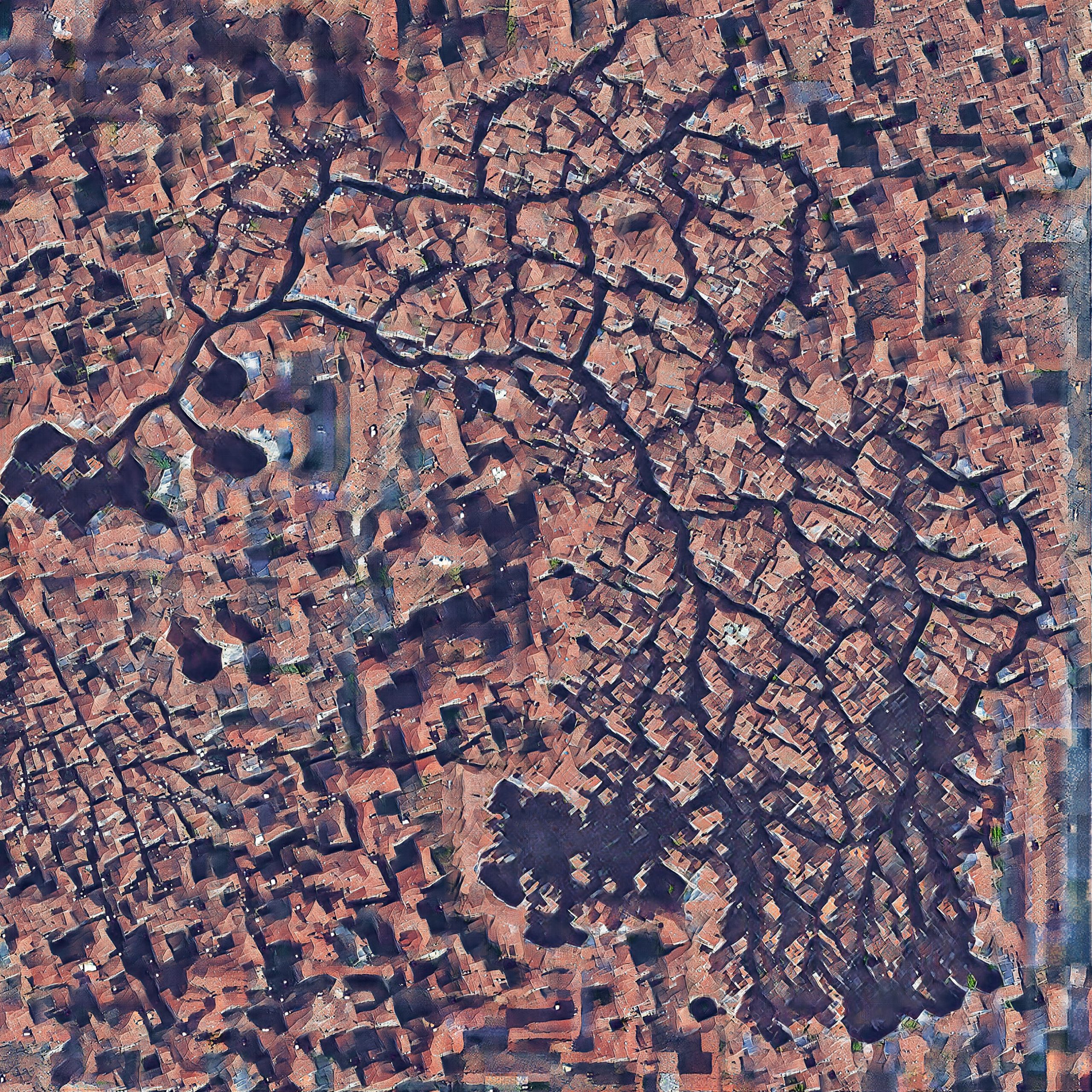This project showcases ecoLogicStudio's recent work on the future of green urban planning, combining artificial intelligence with big data analysis. It also features a unique insight in the infrastructural logics of the Venetian canal system with a speculative AI video simulation, illustrating the accelerated evolution of the Venetian urban fabric over the course of the next 250 years.
DeepGreen focuses on several cities (Guatemala City in Guatemala, Mogadishu in Somalia, Vranje in Serbia) where ecoLogicStudio has been testing the potential of Artificial Intelligence to develop a new green planning interface. Since cities are the biggest CO2 emitters, the project aims at redesigning their infrastructural apparatus towards carbon neutrality in order to convert their waste and pollution into raw materials that can be used for new production processes within the Urbansphere that we inhabit.
This method questions traditional planning concepts such as zone, boundary, scale, typology and program. Such outdated notions constrain the emergence of a truly systemic approach to urbanisation, one that recognises the true nature of contemporary cities as complex dynamical systems - where built environment, and human systems interact regularly with green spaces.
DeepGreen uses algorithms to analyse hi-resolution urban landscape and infrastructure data to produce simulated scenarios of sustainable urban development. The data are open sourced GIS information, available even for rather remote and underdeveloped regions of the world.
The algorithmic model behind DeepGreen is also at the core of Urbansphere, the video-installation that was on show inside the Italian Pavilion at the Biennale Architettura 2021 in Venice (Italy) and within an upcoming 2022 exhibition at the Centre Pompidou in Paris (France).
A second test bed for this biological algorithm, the GAN-Physarum, is Paris. ecoLogicStudio has virtually sent it on a computational derivé on the streets of the city to map and read how contemporary Paris has evolved and how it is structured (i.e. transport network, streets). The Physarum Polycephalum is able to solve problems of urban re-metabolization, such as carbon neutrality, energetic self-sufficiency and increased biodiversity, and to build a new intelligent urban planning tool.
The future of green technologies emerging from the landscapes of the post-Anthropocene era is wet, soft and behavioural. Cities are evolving into intelligent super-organisms and shall become capable of searching for opportunities of co-evolution within the Urbansphere, both for their human and non-human citizens.

Urbansphere takes hints from the natural evolution of Venice. Thanks to an Artificial Intelligence algorithm (CycleGAN Generative Adversarial Networks algorithm), the organic intelligence of the lagoon is combined with the biological intelligence of the Physarum Polycephalum, an acellular slime mold, and the infrastructural logics of the Venetian canal system. The video installation in the Italian Pavilion shows how the urban fabric of Venice could evolve in the next 250 years.
1 / 6






